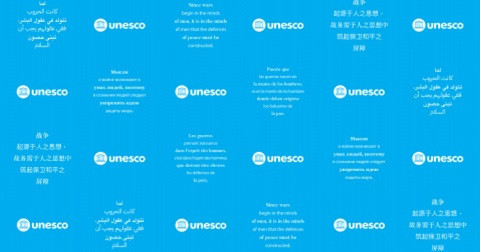
GCED Basic Search Form
Quick Search
Usted está aquí
Events

The conference aims at tackling the challenges that the COVID-19 pandemic has brought in education, particularly in protecting and promoting students voice and fundamental freedoms and rights, while also exploring the opportunity that the current crisis can provide to reshape the education systems in terms of student participation.
The conference will build on the preliminary findings from a joint UNESCO/Council of Europe research study on the impact of COVID-19 on student voice and participation, conducted in cooperation with the University of Roehampton (U.K.), as well as on key materials developed by both organizations. The main participants will be teachers, school leaders, policy-makers and students from around 60 countries in Europe, the Middle East and North Africa, who will discuss the role, responsibility and opportunities of schools in increasing young people’s voice and in promoting civic engagement in the digital age.
The right to participation is at the heart of UNESCO Global Citizenship Education (GCE), which aims to be transformative and empower learners to become champions for peaceful societies. The Council of Europe Reference Framework of Competences for Democratic Culture (RFCDC) aims to equip young people with the knowledge and critical understanding, skills, values and attitudes that they need to be able to contribute to a more democratic, inclusive and fair world.
Both UNESCO and the Council of Europe promote a vision of education in which school leaders and teachers contribute significantly to preparing students to build sustainable, peaceful societies by developing adherence to and taking action to defend and promote human rights, democracy and the rule of law, and to participate effectively in culturally diverse societies.
When students express their opinion in the school community, this can only beneficiary not only to the educational institutions, but also the wider society. Participating in school decision-making fosters a sense of citizenship in young learners, helping them to develop important competences, such as cooperation and communication skills, self-efficacy, responsibility, civic-mindedness and respect for the value of democracy (RFCDC); this has a positive influence on school discipline and helps to reduce the incidence of problems, such as drop-out, bullying, substance abuse and radicalisation (UNESCO and UNODC, 2019); it has a positive effect not only on the classroom atmosphere, but also on the educational achievements of students and their peers.
As countries, local communities and schools are faced with growing intolerance of diversity, lack of respect for human rights, violent conflict, and societal and environmental degradation, as well as more recently the global COVID-19 pandemic, education can play an important role in gradually improving this state of affairs.
UNESCO and the Council of Europe are organizing, in partnership the conference to:
- Facilitate the dialogue between students, school practitioners and policy-makers to map out challenges and practices for raising student voice and, in effect, empowering their participation and civic engagement in and outside of schools;
- Review the impact of COVID-19 on student voice and participation in secondary schools, building on the findings from a recent research study conducted in cooperation with the University of Roehampton (UK);
- Discuss effective education strategies to equip students with the relevant values, attitudes, skills, knowledge and critical understanding in both physical and digital environments;
- Showcase evidence of the benefits of education strategies that promote students’ participation and civic engagement.
The conference will help produce a report for policy-makers with suggestions based on research from evidence.
The conference will be help online in English, with interpretation provided into Arabic and French.
Related Content
Useful Links
URL:
